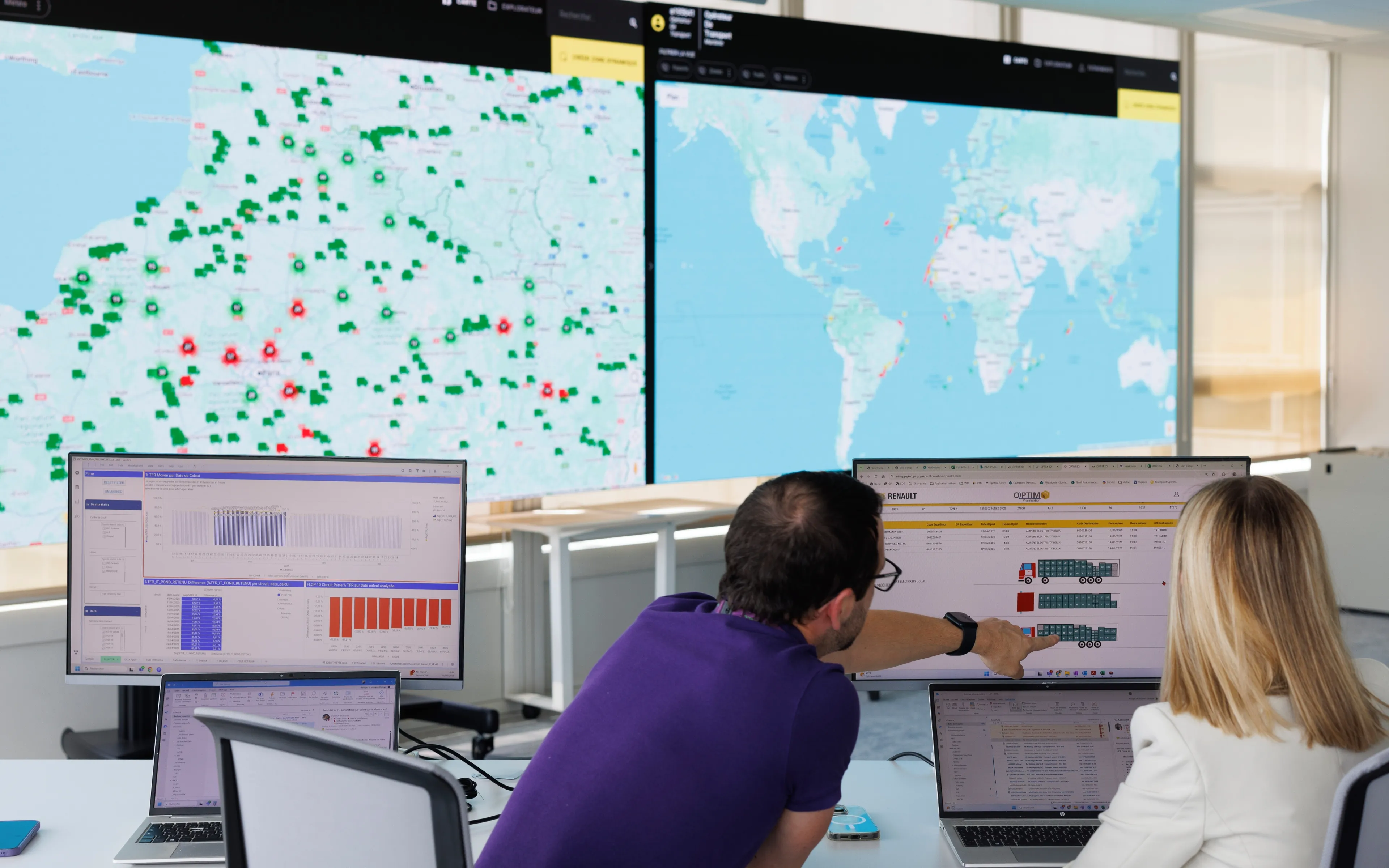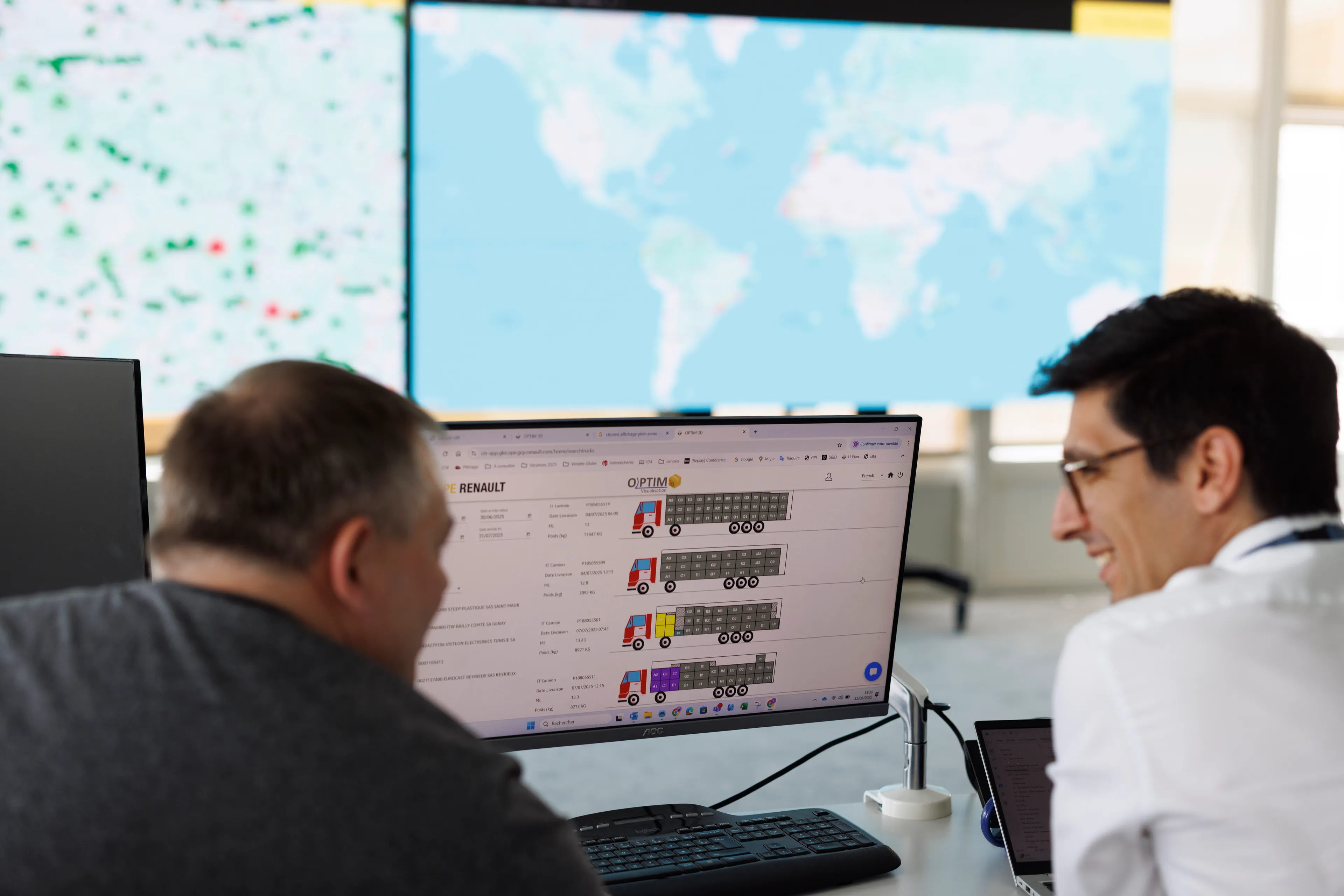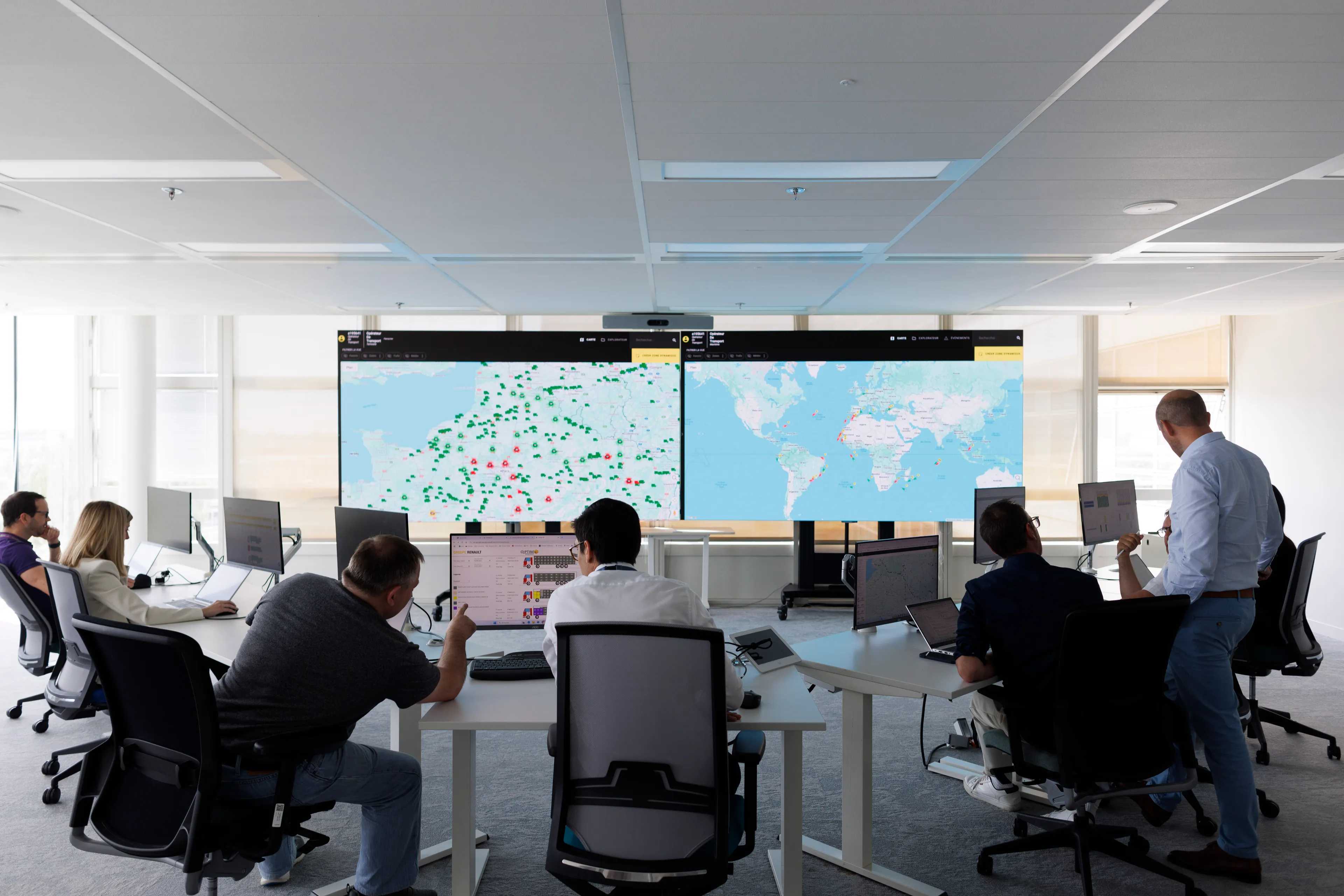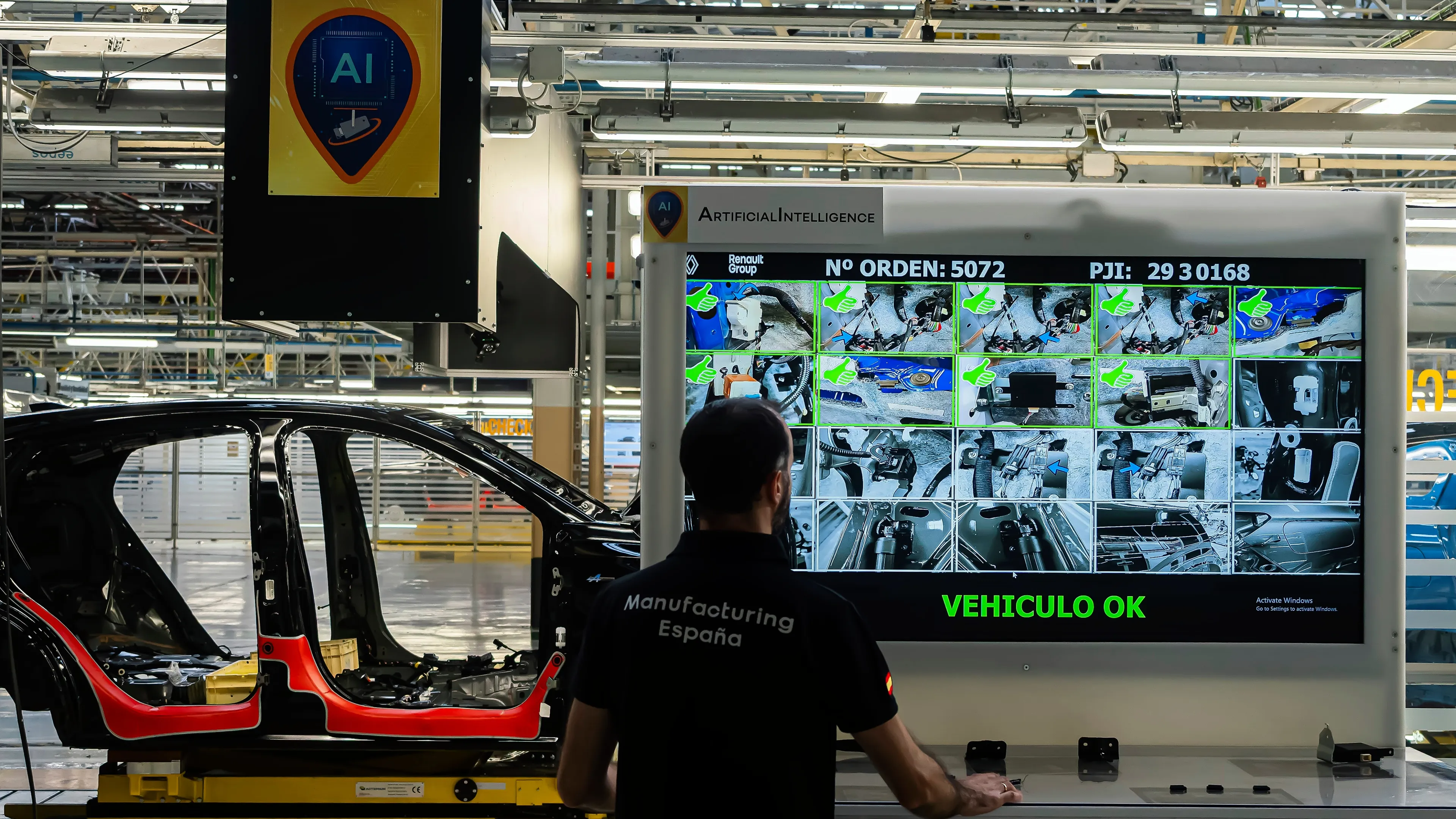Artificial Intelligence in logistics: driving our industrial performance
Published on

Our series ‘AI in action at Renault Group’ first took us into the world of industry. In this new episode, we enter the logistics chain. In this complex field, which involves numerous parameters, our teams embraced artificial intelligence very early on. How is AI revolutionising logistics? What concrete benefits does it bring? Let’s dive into the heart of this revolution.
The supply chain: a daily challenge in a complex environment
Managing Renault Group's logistics flows is a real daily challenge. It involves delivering more than 100,000 different parts, supplied by more than 4,000 direct suppliers. These parts are transported to the Group's 25 manufacturing sites, located in 11 different countries. Then, once the vehicles have been manufactured at a rate of 10,000 per day, transporting them using 1,200 lorries and 1,000 ships every day to ensure our products reach their points of sale in 140 countries. Our teams rise to this challenge every day. They anticipate, organise, manage the unexpected and constantly adapt.
Added to the complexity of the job is the complexity of the automotive industry. Faced with major challenges, the automotive sector is undergoing unprecedented change, and the supply chain is keeping pace with this evolution. Tighter regulations, the electrification of vehicles and their new value chain, decarbonisation targets for logistics, and international political, economic and climate uncertainties are all contributing to an unstable environment.
To meet these challenges, Renault Group is relying on an ambitious digital strategy, in which data and artificial intelligence play a central role. Within the Supply Chain department, a dedicated team designs, deploys and maintains digital processes and solutions to ensure operational performance.
Artificial intelligence at the service of the supply chain, solving real-world problems

“ There are many “mathematical” problems to deal with in a supply chain: filling lorries as efficiently as possible, predicting vehicle orders, identifying supply risks, etc. AI enables us to tackle these issues with greater efficiency. ”
Christian Serrano
AI team manager, Renault Group Supply chain
In the supply chain, artificial intelligence has enabled the development of tools that optimise operations. This is a totally pragmatic approach, providing tailored business solutions for, in particular:
- Optimise truck loading: The OPTIM3D tool, deployed since 2020, maximises space utilisation in trucks transporting parts between our suppliers and our factories, thereby reducing the number of trucks on the road. In addition, suppliers have access to loading plans, which facilitates this operation.

- Optimise transport routes: The OPTIMROUTE tool, deployed in 2023, calculates the best routes for transporting parts, taking into account distances, costs and time constraints.
Thanks to these two tools, Renault Group has achieved savings of around €20 million and reduced its CO2 emissions by around 20,000 tonnes between 2021 and 2024. These convincing results have encouraged us to go even further.
- Predicting transport costs: The U-PREDICT tool, deployed in 2023, estimates transport costs in real time, enabling informed decisions to be made in the event of problems (delays, incidents, etc.).
- Suggest alternative parts: SIMILAR PART RECOMMENDER, rolled out in 2024, suggests similar parts as part of the documentation and vehicle pre-project process.
- Identify risks: The MEDIA SCREENING tool, deployed in 2024, analyses current events to detect incidents (strikes, natural disasters, etc.) that could impact the supply chain, particularly our tier 1 and tier N suppliers, thereby enabling us to anticipate problems.
- Training teams: CHABOTS are integrated into digital tools to answer our teams' most frequently asked questions, leaving experts more time to deal with more complex issues.
Other applications are already planned, incorporating artificial intelligence. These are currently in the pilot or deployment phase and will, in the very near future, optimise the design of parts and vehicle logistics networks, advise dealers on replenishing their vehicle stock, and streamline the arrival of vehicles at their point of sale by better predicting orders and transport times.

Some of these tools are implemented in our three Logistics Control Towers, which monitor our logistics operations on a daily basis:
- Business Continuity Plan (BCP) Control Tower to ensure the resilience of the supplier ecosystem.
- Parts Logistics Control Tower to ensure that parts are delivered on time to our factories.
- Vehicle Logistics Control Tower to ensure that vehicles are delivered on time to customers.
Measurable gains thanks to logistics AI
" Our AI tools enable us to make gains in many areas. We measure these gains in terms of cost, time, and also CO2 emissions. " , Christian Serrano, AI team manager, Renault Group Supply chain
The use of AI in the Renault Group's supply chain has resulted in concrete and measurable gains:
- Cost reduction: Optimising logistics flows and predicting costs reduces transport and stocks management expenses.
- Improved responsiveness: The ability to anticipate problems and make quick decisions enables better management of unforeseen events and ensures continuity of production.
- Reduced CO2 emissions: By optimising truck loads and transport routes, AI helps to reduce the company's environmental footprint.
A matter of internal and external expertise in artificial intelligence
The development and deployment of these AI-based tools are the result of close collaboration between supply chain experts and AI specialists. Machine learning, operational research and generative AI: these three artificial intelligence technologies are used in our supply chain management tools, depending on the use cases to be addressed. Christian Serrano's team manages these projects, with support from Renault Digital for all topics involving operational research, which requires highly specific developments.

“ Renault Digital’s Applied Artificial Intelligence team works closely with various departments within the company, particularly Supply Chain. Our Operational Research experts develop and implement high-performance algorithms to optimise processes. Our optimisation and decision-making tools are directly used in operational activities. ”
Siham Essodaigui
Head of Applied Artificial Intelligence, Renault Group IT and Digital Department.
Renault Group also relies on a five-year partnership (2023-2028) with CERMICS, the applied mathematics laboratory at École des Ponts de Paris, to benefit from cutting-edge expertise in AI applied to the supply chain. This collaboration focuses on medium- and long-term research projects (internships, PhD, post-doctorates), consulting and ad hoc studies, as well as active monitoring and external communications. CIFRE theses, such as those by Louis Bouvier on optimising the dispatch of empty packaging and Mathis Brichet on optimising the inbound logistics network, are leading to concrete operational tools. The partnership also includes training and the creation of a library of reusable code bricks.
AI agents, an open field of exploration
Renault Group continues to invest in AI to improve its supply chain. The company is exploring new applications, such as the use of AI agents to automate certain tasks and make the supply chain increasingly efficient, agile and sustainable, in order to continue improving competitiveness and meet the challenges facing the automotive industry.
The next episode of our series ‘AI in action at Renault Group’ will focus on the use of artificial intelligence in driver assistance systems in our vehicles.


